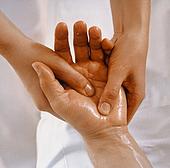Irritable bowel syndrome (IBS) is a chronic, periodic intestinal disorder categorized by gut pain and odd bowel habits. This disorder affects the lives of around 1 in 7 Americans. Then again, it should be added that most cases go undiagnosed. IBS can have a considerable impact on happiness and health of people, still doctors seem to undervalue the influence the disease can have, on the whole the pain and discomfort. Using some actions, the health-related quality of life of irritable bowel sufferers can rival that of sufferers of much more severe illnesses, like diabetes, kidney failure, and inflammatory bowel diseases. Nonetheless, the initial step toward effective treatment is for doctors to admit the condition and not just dismiss the patient as just hysterical or something mental.
Then again, many people with this disorder will not speak out, out of the fear that there is a lack of effectiveness of the obtainable treatments. There is an enormous unmet therapeutic need. Since IBS has no cure, treatment is targeted to ease the symptoms. Typical antispasmodic drugs can cause side effects, such as a dry mouth, dizziness, blurred vision, fall risk and confusion. In adiditon, new drugs being released to the market such as Lubiprostone and Linaclotide, are expensive and have side effects.
Antidepressants are usually given but may take weeks or even months to start helping. These drugs like Prozac or Celexa take 4 to 6 weeks to offer some relief, and Paxil can take longer – up to 12 weeks. They also have their own collection of side effects, which can include side effects like sexual dysfunction in over 70 percent the cases who take these pills.
The question would be if there were no other options available.
Acupuncture is one, but this can be no better than placebo. Placebo acupuncture, you may ask. Yes, that is where someone poke you with a fake needle away from any known acupuncture points. Yet that worked just as well as the actual acupuncture. This showing the influence of the placebo effect.
Not that one is asking doctors to lie to their patients. Not really, but providing a patient with a sugar pill, thereby making them think it is an actual drug could work.
For instance, where either patients with irritable bowel syndrome were randomized to get nothing or a prescription medicine bottle of placebo pills with a label clearly marked “placebo pills” “take 2 pills twice daily.” Unethical, yes, but still. It works, this showing you the effect of the placebo effect for irritable bowel.
Alternatively, peppermint oil could help people with Irritable Bowel Syndrome. However, there were a couple of side effects reported, but were mild and transient in nature. These included problems like peppermint taste, peppermint smell, and a cooling sensation around one’s bottom on the way out. In contrast, in some of the head-to-head peppermint versus drug studies, some of the drug side effects were so intolerable that patients had to drop out of the study. This put forward that this treatment option might be a reasonable approach for clinicians to treat IBS patients with peppermint oil as a first-line therapy, before trying expensive drugs that have harmful side effects.
Then you might want to ask, what about peppermint tea? In reality, peppermint tea has never been tested however, there is the assumption that peppermint tea might not be concentrated enough. On the other hand, a quarter cup of fresh peppermint leaves has as much peppermint oil as some of the capsule doses used in some studies. One could easily blend the peppermint oil into a smoothie. In addition, you could also grow your own mint. .
The point here is that effective treatments are need that are accessible, cheap and safe to use, with minimal side effect if any. New drug might be coming on to the market, but these are leading to other problems. Then again, we should also consider only eating food we can pronounce. Therefore, using mint, could be a novel approach, but yield less side effects than some pharmacological




